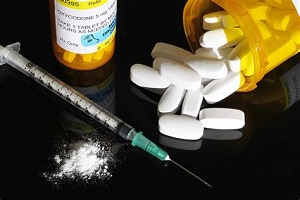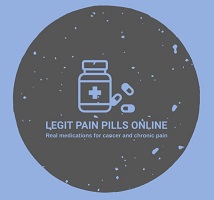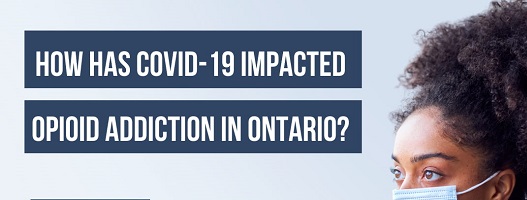Opioid Crisis COVID 19: Unmasking the Hidden Epidemic
Delve into the Opioid Crisis COVID 19. Legit Pain Pills Online is your trusted source for quality medications for various health needs. The COVID-19 pandemic has not only caused a global health crisis but has also exacerbated the opioid addiction epidemic, revealing the deep-seated vulnerabilities within our healthcare systems. The opioid crisis, already a significant public health issue, has been intensified by the pandemic, leading to a surge in overdose deaths and a strain on addiction treatment resources. The intersection of these two crises has created a perfect storm, bringing to light the urgent need for comprehensive strategies to address opioid addiction amid the pandemic.
During the COVID-19 pandemic, many individuals struggling with opioid addiction have faced increased isolation, economic hardship, and mental health challenges. Social distancing measures, while necessary to curb the spread of the virus, have also disrupted access to vital support networks and treatment services. This isolation has often led to increased substance use as a coping mechanism, further entrenching individuals in the cycle of addiction.
The economic impact of the pandemic has also played a significant role in exacerbating the opioid crisis. Job losses, financial instability, and housing insecurity have created additional stressors for those already vulnerable to addiction. The lack of economic opportunities and the uncertainty of the future have driven many individuals to seek solace in opioid use, leading to a rise in addiction rates and overdose deaths.
Moreover, the pandemic has strained healthcare systems, making it more challenging for individuals with opioid addiction to access treatment. Hospitals and clinics have been overwhelmed with COVID-19 cases, leading to a reduction in available resources for addiction treatment. This has resulted in longer wait times for treatment, limited access to medication-assisted treatment (MAT), and a decrease in the availability of harm reduction services such as needle exchange programs and naloxone distribution.
Combating Opioid Addiction: Strategies and Solutions
In response to the exacerbated opioid crisis, various strategies and solutions have been implemented to combat opioid addiction. These efforts aim to provide comprehensive support to individuals struggling with addiction, ensuring they have access to the necessary resources and treatment options to achieve recovery.
One of the key strategies in combating opioid addiction is the expansion of telehealth services. The pandemic has accelerated the adoption of telehealth, allowing individuals to access addiction treatment and counseling services remotely. This has been particularly beneficial for those living in rural areas or those who are unable to attend in-person appointments due to COVID-19 restrictions. Telehealth has provided a lifeline for many individuals, ensuring continuity of care and support during these challenging times.

Another important approach is the increased availability of medication-assisted treatment (MAT). MAT combines medications such as methadone, buprenorphine, and naltrexone with counseling and behavioral therapies to treat opioid addiction. By reducing cravings and withdrawal symptoms, MAT helps individuals maintain long-term recovery. During the pandemic, efforts have been made to expand access to MAT, including the relaxation of regulations to allow for take-home doses and the use of telehealth for MAT consultations.
Harm reduction strategies have also played a crucial role in combating opioid addiction during the pandemic. Harm reduction approaches aim to minimize the negative consequences of drug use, rather than focusing solely on abstinence. This includes the distribution of naloxone, a life-saving medication that can reverse opioid overdoses, as well as the provision of clean needles and safe injection sites. These measures not only reduce the risk of overdose and the spread of infectious diseases but also serve as an entry point for individuals to access addiction treatment and support services.
Community-based initiatives have been instrumental in addressing the opioid crisis during the pandemic. Grassroots organizations and local support groups have stepped up to provide essential services, such as food distribution, housing assistance, and mental health support. These community-driven efforts have helped to fill the gaps left by strained healthcare systems, offering a lifeline to individuals struggling with addiction.
Addiction Treatment COVID-19: Navigating New Challenges
The COVID-19 pandemic has presented unique challenges for addiction treatment, requiring innovative solutions to ensure individuals receive the care they need. The following are some of the key challenges and the strategies being employed to navigate them:
First, the disruption of in-person treatment services has necessitated a shift to virtual care. Telehealth has become a critical tool in providing addiction treatment, allowing individuals to access therapy, counseling, and medical consultations from the safety of their homes. This shift has required rapid adaptation by both healthcare providers and patients, but it has also highlighted the potential for telehealth to increase access to care in the long term.
Second, the pandemic has highlighted the need for flexible and adaptive treatment models. Traditional treatment programs often rely on rigid schedules and in-person attendance, which can be challenging for individuals facing COVID-19-related disruptions. To address this, many treatment providers have adopted more flexible approaches, such as offering virtual support groups, extending clinic hours, and providing take-home doses of medication.
Third, the economic impact of the pandemic has underscored the importance of addressing the social determinants of health in addiction treatment. Financial instability, housing insecurity, and lack of access to basic needs can all exacerbate addiction. As such, comprehensive treatment programs that address these underlying issues are essential. This includes providing resources for employment, housing, and social support, in addition to traditional addiction treatment services.
Finally, the pandemic has emphasized the importance of mental health support in addiction treatment. The stress, anxiety, and isolation caused by COVID-19 have taken a toll on mental health, which can in turn fuel substance use. Integrating mental health services into addiction treatment programs is crucial to addressing the complex interplay between mental health and addiction. This includes offering therapy, psychiatric care, and support groups to help individuals build resilience and coping skills.
Opioid Crisis COVID-19: The Role of Policy and Advocacy
Addressing the opioid crisis in the context of COVID-19 requires robust policy measures and advocacy efforts. Policymakers play a critical role in shaping the response to the opioid crisis, and their actions can have a significant impact on the availability and accessibility of addiction treatment services. Advocacy organizations and community groups are also essential in driving change and raising awareness about the urgent need for comprehensive solutions to the opioid crisis.
One of the key policy measures that can help combat the opioid crisis is the allocation of adequate funding for addiction treatment programs. Increased funding can support the expansion of treatment facilities, the hiring of additional healthcare professionals, and the provision of necessary resources for individuals in recovery. Additionally, funding can be used to support research and development of new treatment modalities and harm reduction strategies.

Another important policy consideration is the relaxation of regulations that may hinder access to addiction treatment. For example, during the pandemic, temporary measures were put in place to allow for take-home doses of medication-assisted treatment and the use of telehealth for consultations. Making these measures permanent can help ensure that individuals have continued access to treatment, even in the face of future disruptions.
Advocacy efforts are also crucial in addressing the opioid crisis. Advocacy organizations work to raise awareness about the impact of opioid addiction, reduce stigma, and promote evidence-based treatment approaches. By engaging with policymakers, healthcare providers, and the public, advocacy groups can help drive systemic change and ensure that the needs of individuals struggling with addiction are met.
Community engagement is another important aspect of advocacy. Grassroots organizations and local support groups play a vital role in providing on-the-ground support to individuals affected by the opioid crisis. These community-driven efforts can help bridge the gap between formal treatment services and the needs of individuals in recovery, offering a more holistic approach to addiction treatment.
Combating Opioid Addiction: The Importance of Education and Prevention
Education and prevention are key components of any comprehensive strategy to combat opioid addiction. By raising awareness about the risks of opioid use and promoting healthy behaviors, we can help prevent the onset of addiction and reduce the overall impact of the opioid crisis.
One important aspect of education is providing accurate information about the dangers of opioid use. This includes educating the public about the risks of prescription opioid misuse, the potential for addiction, and the signs of opioid overdose. Public health campaigns, school-based programs, and community outreach initiatives can all play a role in disseminating this information and encouraging individuals to make informed decisions about their health.
Prevention efforts also focus on reducing the availability of opioids and promoting safer prescribing practices. This includes implementing prescription drug monitoring programs (PDMPs) to track the prescribing and dispensing of controlled substances, as well as providing training for healthcare providers on safe prescribing practices and alternative pain management strategies. By reducing the over-prescription of opioids, we can help prevent the development of addiction and reduce the risk of overdose.
Another important aspect of prevention is addressing the underlying factors that contribute to opioid addiction. This includes addressing social determinants of health, such as poverty, lack of education, and limited access to healthcare. By addressing these root causes, we can help reduce the vulnerability of individuals to addiction and create a more supportive environment for recovery.
A Holistic Approach to Addressing the Opioid Crisis

The COVID-19 pandemic has brought to light the deep-seated vulnerabilities within our healthcare systems and the urgent need for comprehensive strategies to address opioid addiction. By expanding telehealth services, increasing access to medication-assisted treatment, implementing harm reduction strategies, and addressing the social determinants of health, we can combat the opioid crisis and support individuals on their path to recovery. The pandemic has underscored the importance of a holistic approach to addiction treatment, one that recognizes the interconnectedness of physical, mental, and social well-being. Buy LSD drugs Online.
As we navigate the ongoing challenges of the pandemic, it is essential to continue advocating for policies and practices that support individuals struggling with opioid addiction. This includes ensuring adequate funding for addiction treatment programs, expanding access to healthcare services, and promoting community-based initiatives. By working together, we can create a more resilient and compassionate healthcare system that meets the needs of all individuals, particularly those most vulnerable to addiction.

